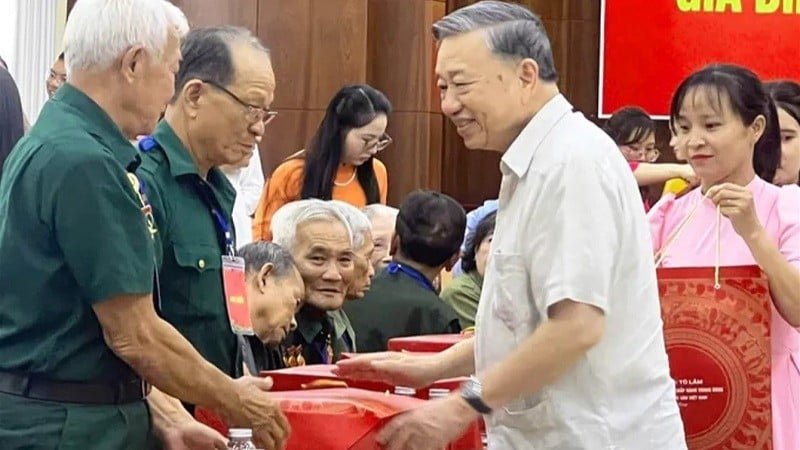
General Secretary To Lam visited and presented gifts to Vietnamese heroic mothers and outstanding policy families in Dong Thap province. (Photo: TIN HUY)
The international community recognizes through votes
These days, the news that Vietnam was re-elected as a member of the United Nations Human Rights Council for the 2026-2028 term has attracted great attention from public opinion at home and abroad.
Specifically, the plenary session of the United Nations General Assembly on October 14 elected 14 member countries of the United Nations Human Rights Council for the 2026-2028 term, including Vietnam, India, Pakistan, Iraq, Egypt, South Africa, Mauritius, Angola, Estonia, Slovenia, Chile, Ecuador, Italy and the UK. Vietnam received 180 votes of support, the highest in the Asia- Pacific group, and is the only Asia-Pacific country that is a member of the United Nations Human Rights Council for the 2023-2025 term to be re-elected for the 2026-2028 term.
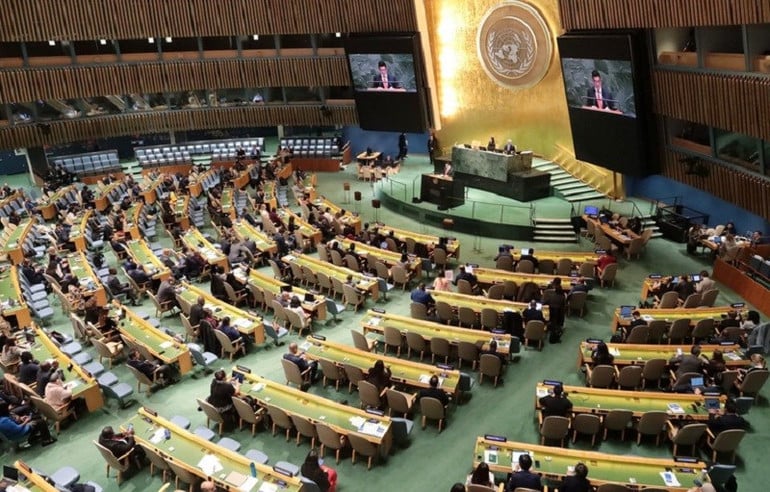
Overview of the plenary session to elect members of the United Nations Human Rights Council for the 2026-2028 term. (Photo: VNA)
It is worth noting that this is the third time Vietnam has been elected as a member of the United Nations Human Rights Council. In 2013, Vietnam was elected for the first time for the 2014-2016 term; in 2022, Vietnam was elected again for the 2023-2025 term. This time, the fact that representatives of 180 countries unanimously elected Vietnam to continue as a member of the United Nations Human Rights Council right when we are about to complete the 2023-2025 term shows the international community's recognition and appreciation of Vietnam's commitments, efforts and achievements in promoting and protecting human rights, ensuring social security, and improving the material and spiritual life of the people. At the same time, it is also a recognition of Vietnam's role and contributions in promoting cooperation on ensuring human rights on a global scale.
On the other hand, the results of the election of members of the United Nations Human Rights Council for the 2026-2028 term are also a strong proof, smashing all the arguments distorting the human rights situation in Vietnam that hostile and reactionary forces have always deliberately spread. In fact, since the end of 2024, when Vietnam announced its re-election to the United Nations Human Rights Council for the 2026-2028 term, hostile and reactionary organizations in exile have published many articles attacking, distorting, and slandering the human rights situation in Vietnam. At the same time, they called for the intervention of international organizations to pressure and prevent Vietnam from running for the United Nations Human Rights Council for the 2026-2028 term.

Hostile forces deliberately distort to prevent Vietnam from being re-elected to the United Nations Human Rights Council for the 2026-2028 term. (Screenshot: QUANG DAO)
Typical examples are articles on the RFA Vietnamese page, VOA Vietnamese page, BBC News Vietnamese page, the Facebook page of the terrorist organization Viet Tan, etc. In which, many arguments are put forward that distort the human rights situation in Vietnam with false information provided by a number of non-governmental organizations that are not friendly to Vietnam, reactionary exile organizations that oppose Vietnam such as the Global Civil Society Alliance (Civicus); United States Commission on International Religious Freedom (USCIRF), Vietnam Human Rights Network (VHRN)... Behind those articles is a plot to lower Vietnam's reputation.
However, the fact that 180 countries unanimously voted to elect Vietnam as a member of the United Nations Human Rights Council for the 2026-2028 term has rejected all the arguments distorting the human rights situation in Vietnam. Because only a country that truly respects and ensures human rights well can be trusted by the majority of other countries to be elected to the United Nations Human Rights Council, an organization with the mission of promoting development and the protection of human rights worldwide.
Mr. Tran Anh Tuan, Head of the Legal and Information Consulting Department, Institute of International Economics and Law, acknowledged: “The broad support of the international community expressed through votes, participation and effective contributions of the entire political system in the spirit of Resolution No. 59-NQ/TW, dated January 24, 2025 of the Politburo on international integration in the new situation is an important basis for Vietnam to continue to successfully fulfill its duties as a member of the United Nations Human Rights Council for the 2026-2028 term”.
Model of human rights protection
Human rights are a synthesis of basic rights and freedoms to assess the legal status of individuals. Human rights in the Party's concept are associated with the right to ensure comprehensive development of each person; people are the center of the development strategy and at the same time the subject of development. Approaching in this direction, under the leadership of the Party, Vietnam has become a "bright spot", a model in ensuring human rights.
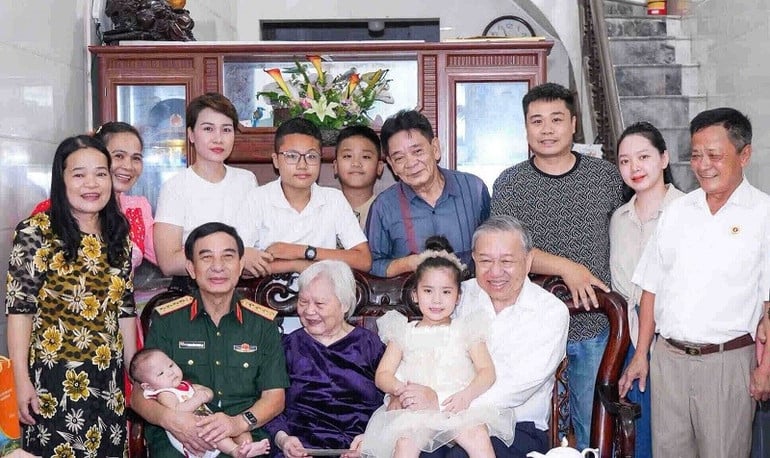
General Secretary To Lam and General Phan Van Giang, Minister of National Defense, took a souvenir photo with the extended family of Vietnamese Heroic Mother Nguyen Thi Oanh. (Photo: THANH CUONG)
Respecting and ensuring human rights is a consistent policy of the Party and State of Vietnam. Human rights and citizens' rights were mentioned early in the 1946 Constitution of the Democratic Republic of Vietnam. Subsequently, human rights and citizens' rights were affirmed and expanded in the 1959, 1980, 1992 and 2013 Constitutions. Article 3 of the 2013 Constitution of Vietnam affirms: "The State guarantees and promotes the people's right to mastery; recognizes, respects, protects and ensures human rights and citizens' rights; realizes the goal of a rich people, a strong country, democracy, fairness, civilization, everyone has a prosperous, free, happy life, and has conditions for comprehensive development" ( 1 ).
To date, Vietnam has ratified and joined 7/9 fundamental conventions of the United Nations on human rights; ratified and joined 25 conventions of the International Labor Organization. The contents of these conventions are specified in legal documents and seriously implemented in practice. This is a clear demonstration of the policy of respecting and ensuring human rights of our Party and State.
COLONEL, ASSOCIATE PROFESSOR, DOCTOR BUI QUANG HUY,
Head of Department of State and Law
(UNIVERSITY OF POLITICS, MINISTRY OF NATIONAL DEFENSE)
Above all, the issue of ensuring human rights in Vietnam has been concretized through a series of policies and guidelines of the Party and State and effectively implemented in practice through the enforcement of human rights according to the Conventions that Vietnam has signed.
For example, the provisions of the law on the death penalty. The 2015 Penal Code stipulates that the death penalty shall not be applied to people under 18 years of age, pregnant women, women raising children under 36 months of age, and people aged 75 or older when committing crimes. The Law amending and supplementing the 2015 Penal Code (effective from July 1, 2025) continues to abolish the death penalty for 8 crimes including: Crime of activities aimed at overthrowing the people's government (Article 109); Crime of espionage (Article 110); Crime of sabotaging the material and technical facilities of the Socialist Republic of Vietnam (Article 114); Crime of manufacturing and trading in counterfeit medicines and disease prevention medicines (Article 194); Crime of illegal transportation of narcotics (Article 250); Crime of embezzlement of property (Article 353); Crime of accepting bribes (Article 354); Crime of undermining peace and waging aggressive war (Article 421).
The abolition of the death penalty for these crimes is in accordance with the provisions of the United Nations International Covenant on Civil and Political Rights (ICCPR). Vietnam joined the ICCPR on September 24, 1982.
Approaching from a research perspective, Colonel, Associate Professor, Dr. Bui Quang Huy, Head of the Department of State and Law (University of Politics, Ministry of National Defense) said: “Up to now, Vietnam has ratified and joined 7/9 fundamental conventions of the United Nations on human rights; ratified and joined 25 conventions of the International Labor Organization. The contents of these conventions are specified in legal documents and seriously implemented in practice. This is a clear demonstration of the policy of respecting and ensuring human rights of our Party and State.”
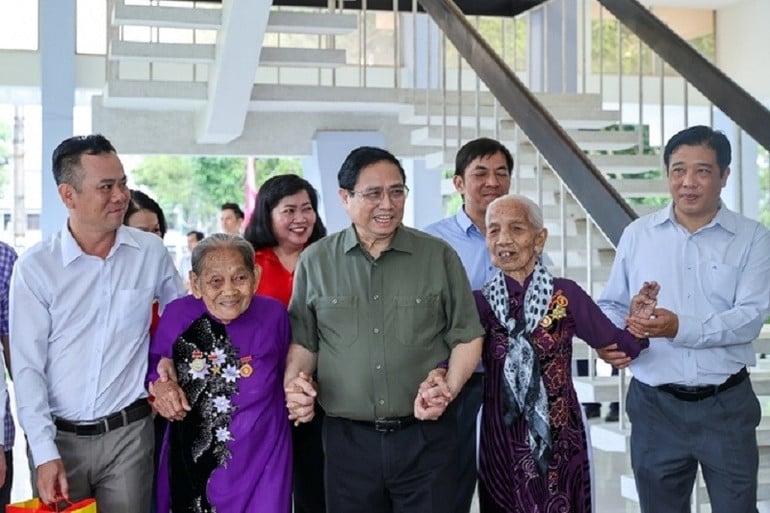
Prime Minister Pham Minh Chinh congratulated and presented gifts to poor households, workers, laborers, and homeless elderly people in Can Tho. (Photo: NHAT BAC)
In particular, Vietnamese people are always guaranteed basic rights such as freedom of belief, freedom of speech, freedom of the press and the right to access information within the framework of the law. According to statistics, by 2024, Vietnam will have more than 70 million internet users, accounting for about 70% of the population, with the strong development of social networking platforms such as Facebook, Zalo, and TikTok. People are always given the opportunity to express their opinions and access information widely and objectively. The freedom of belief of all classes of people is also guaranteed with the existence and development of dozens of large and small religions, with more than 26 million followers, accounting for nearly 27% of the country's population.
Along with that, our Party and State always pay attention to social security work with programs to eradicate hunger, reduce poverty, provide free or low-cost healthcare and education. According to the UNDP Human Development Report, Vietnam's Human Development Index (HDI) in 2024 increased by 8 places compared to the previous period, from 115 to 107/193 countries. According to the United Nations' rankings, Vietnam's happiness index in 2024 ranked 54/143, up 11 places compared to 2023; Vietnam's sustainable development index (SDGs) in 2024 ranked 54/166 countries, up one place compared to 2023.
It can be seen that the results in ensuring human rights in Vietnam have been recognized and highly appreciated by the international community. These undeniable results have both affirmed and enhanced the role, position and prestige of Vietnam in the international arena; and are convincing practical evidence, contributing to dispelling all arguments distorting the human rights situation in Vietnam.
(1) Nhan Dan Newspaper: The 2013 Constitution is the crystallization of the will and intelligence of the entire nation, National Political Publishing House, Hanoi, 2014, p.180.
THUY LINH-QUANG DAO
Source: https://nhandan.vn/viet-nam-luon-ton-trong-va-bao-dam-quyen-con-nguoi-post915753.html



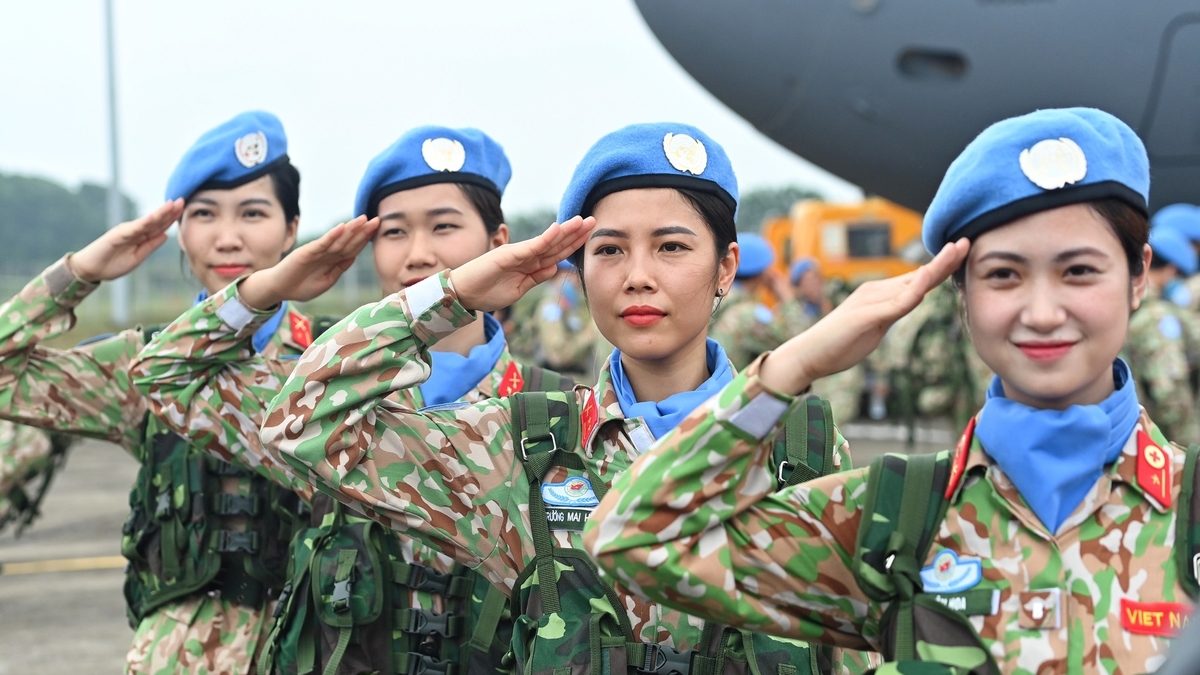


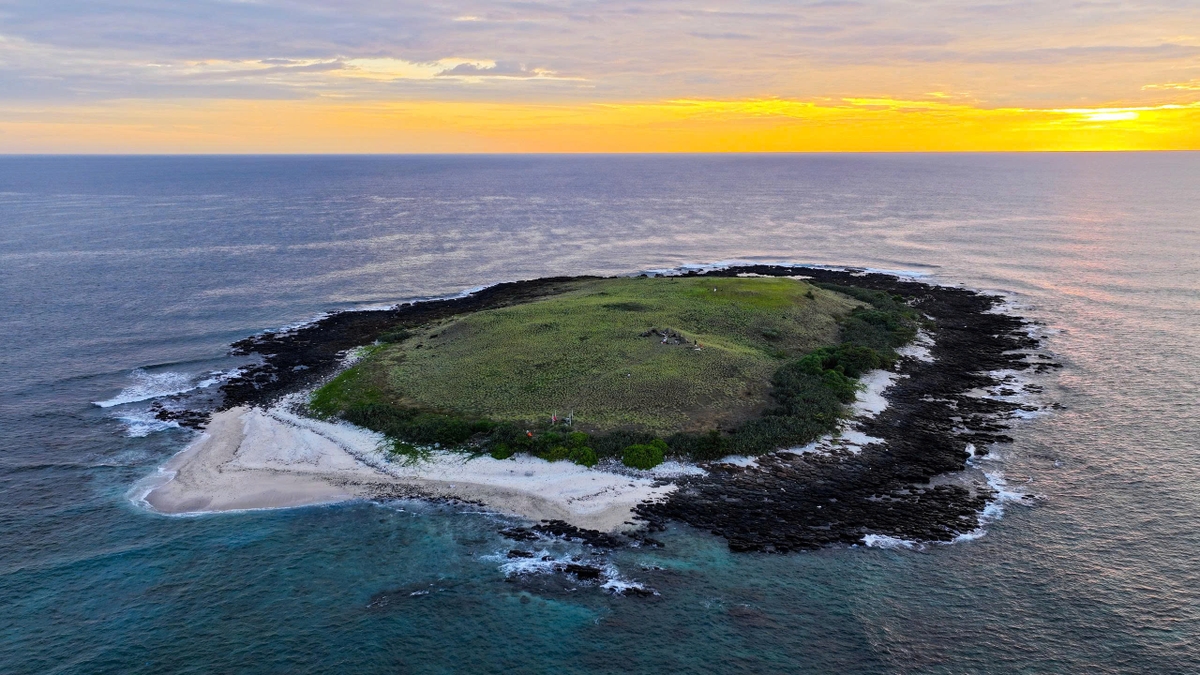

![[Video] 24-hour news on October 19, 2025: Prime Minister Pham Minh Chinh: "Can Tho is a regional center, must be a pioneer, not to be inferior to other provinces"](https://vphoto.vietnam.vn/thumb/402x226/vietnam/resource/IMAGE/2025/10/19/1760878898756_5640263e2da29926af7fb201c767e3e4-jpg.webp)
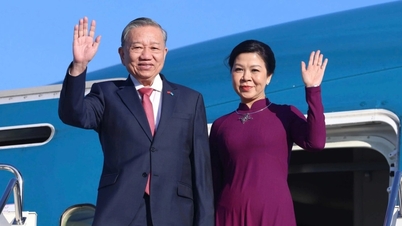


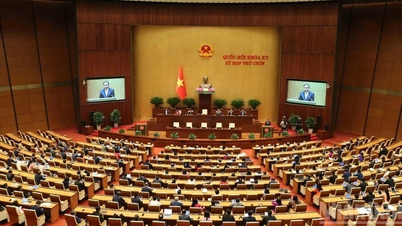
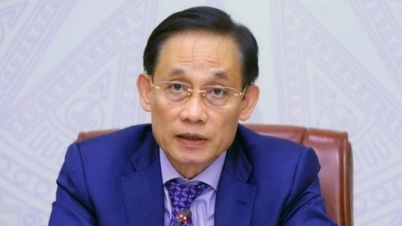
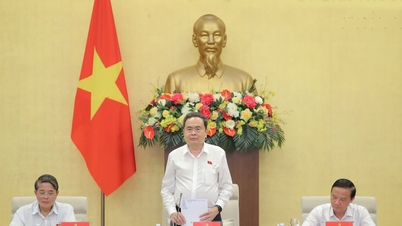





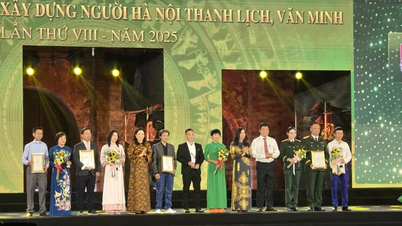

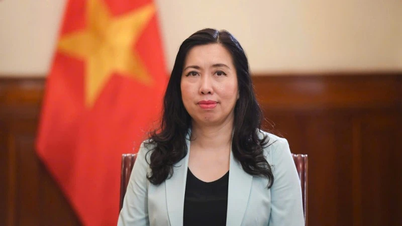
![[Video] Hanoi announces list of qualified candidates for teacher recruitment on October 24](https://vphoto.vietnam.vn/thumb/402x226/vietnam/resource/IMAGE/2025/10/19/1760887897436_thi-giao-vien-4228-jpg.webp)
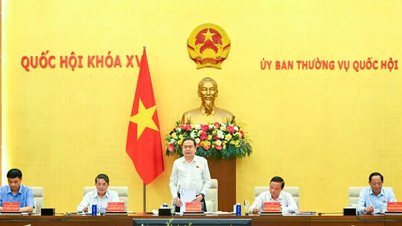


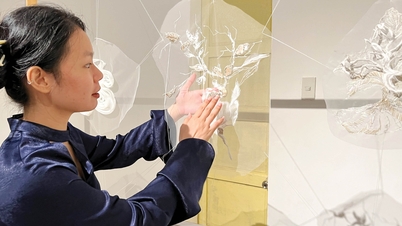

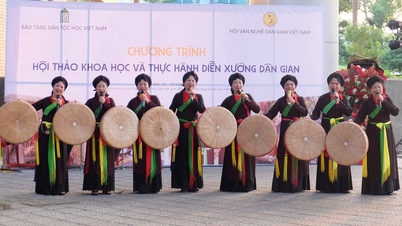



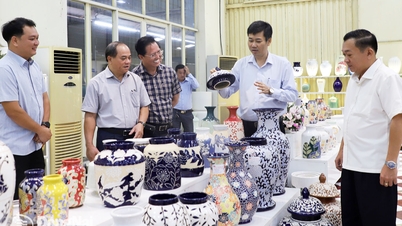





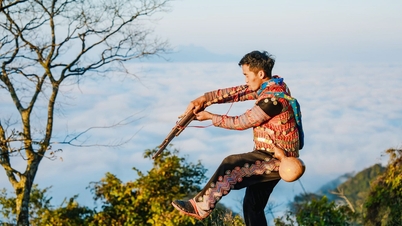

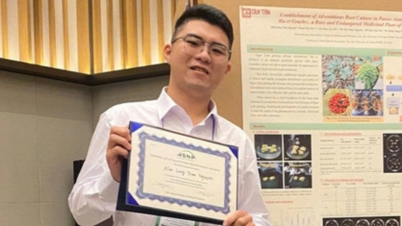



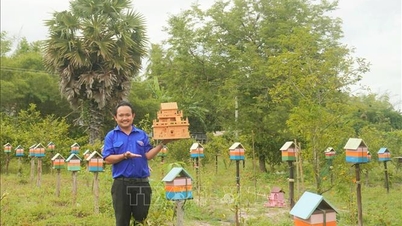




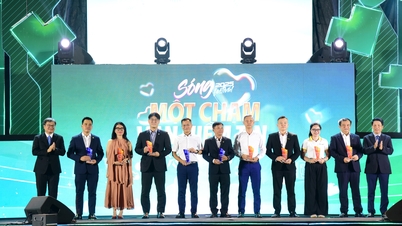












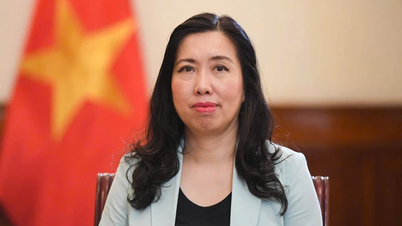

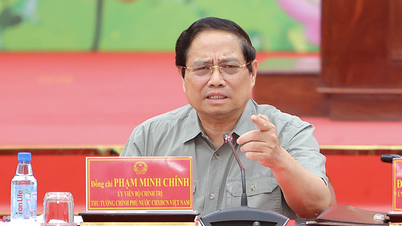



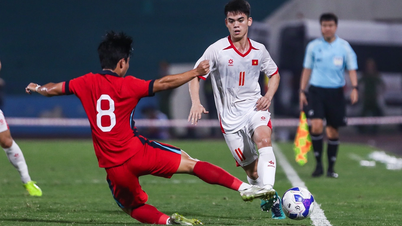
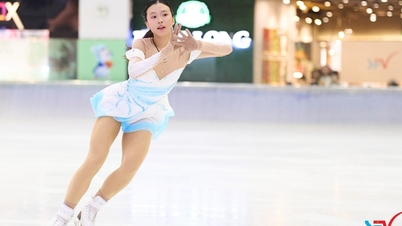

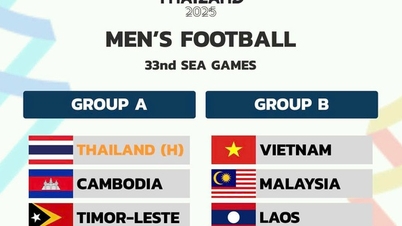

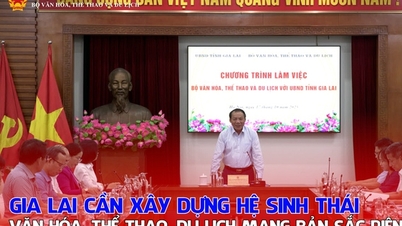





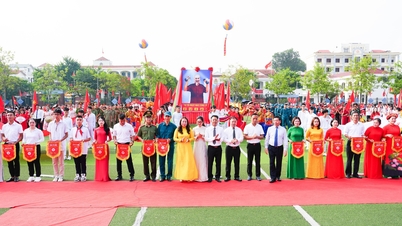
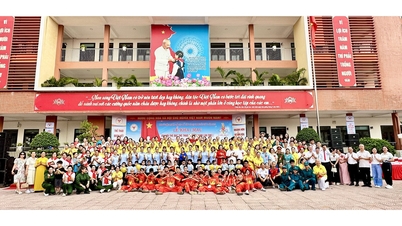
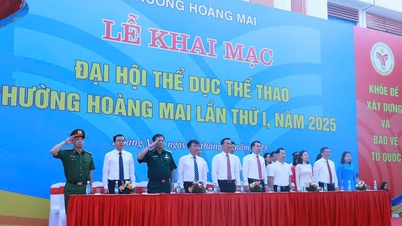
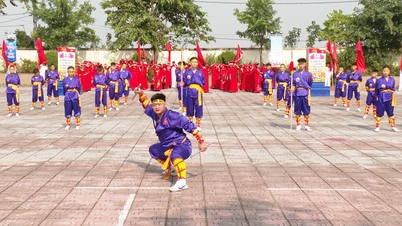











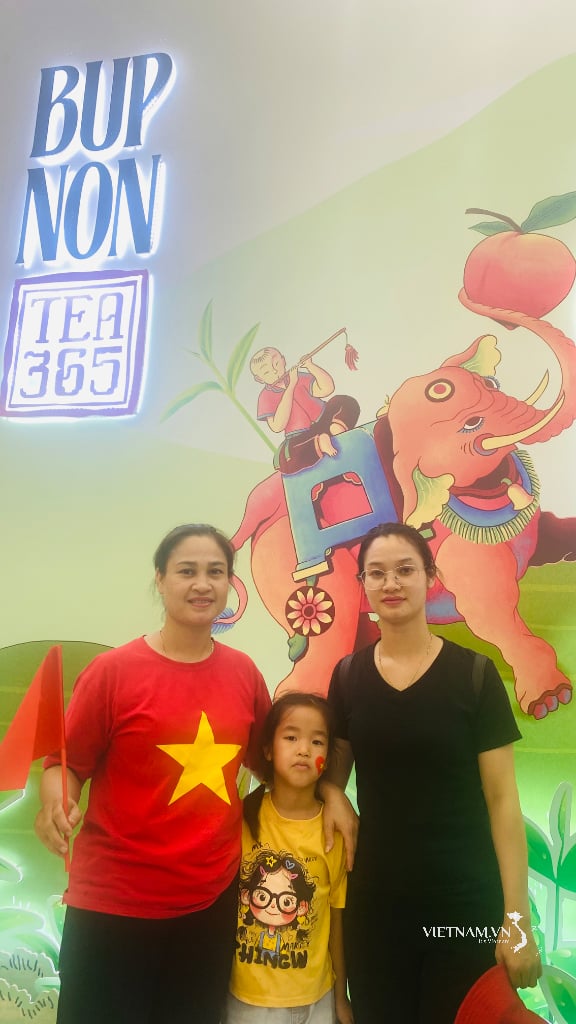
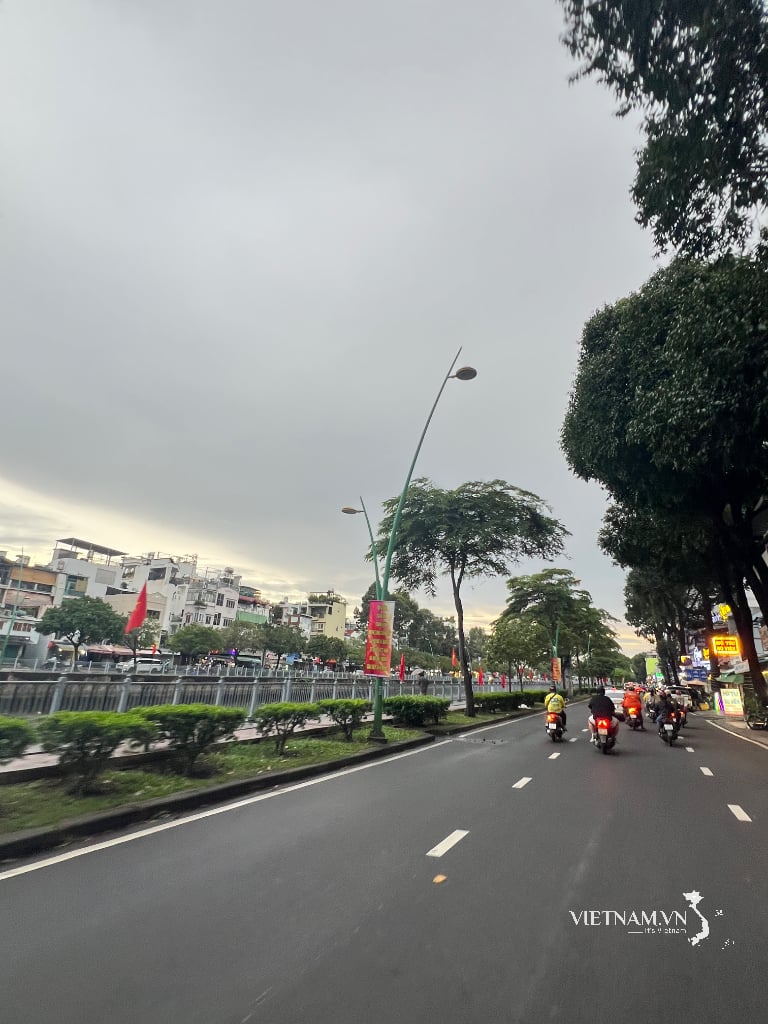


Comment (0)